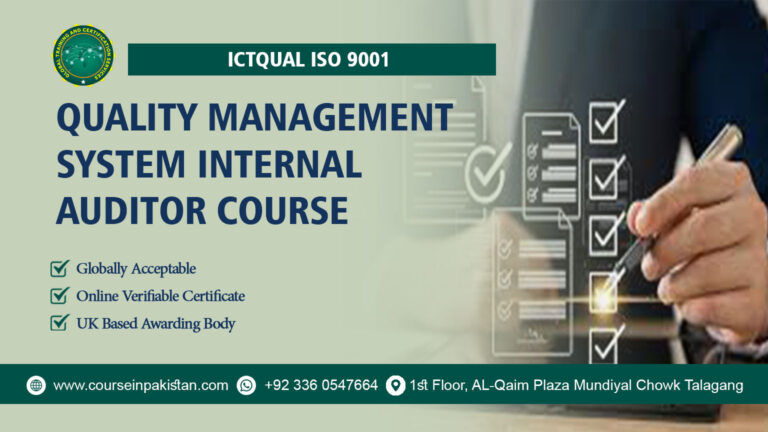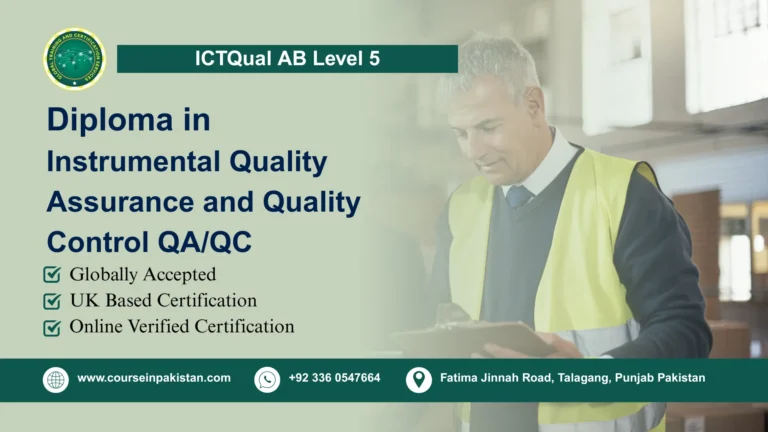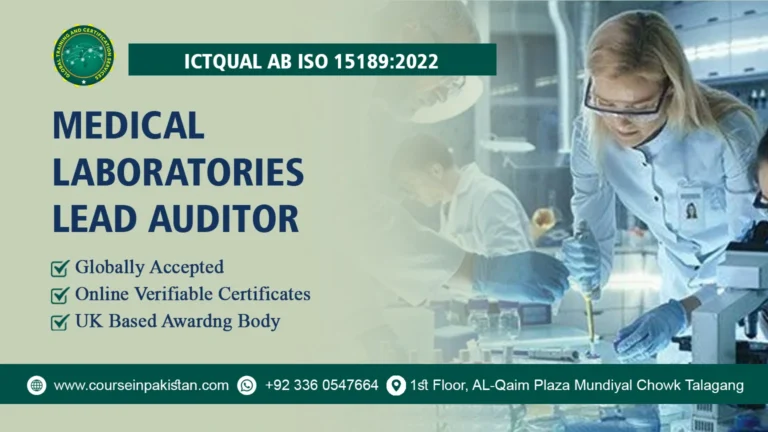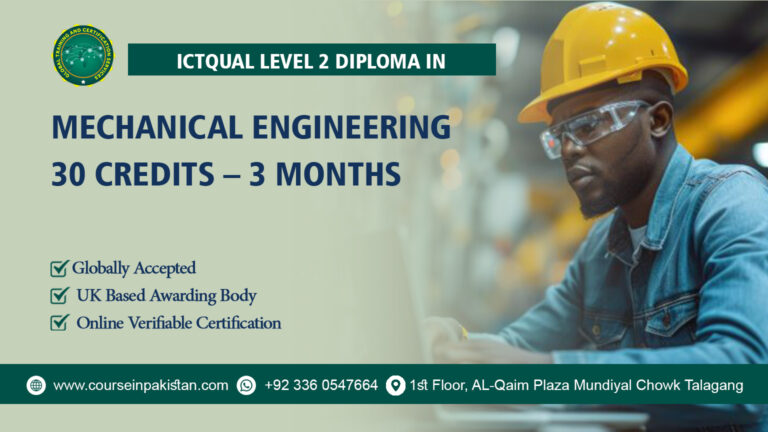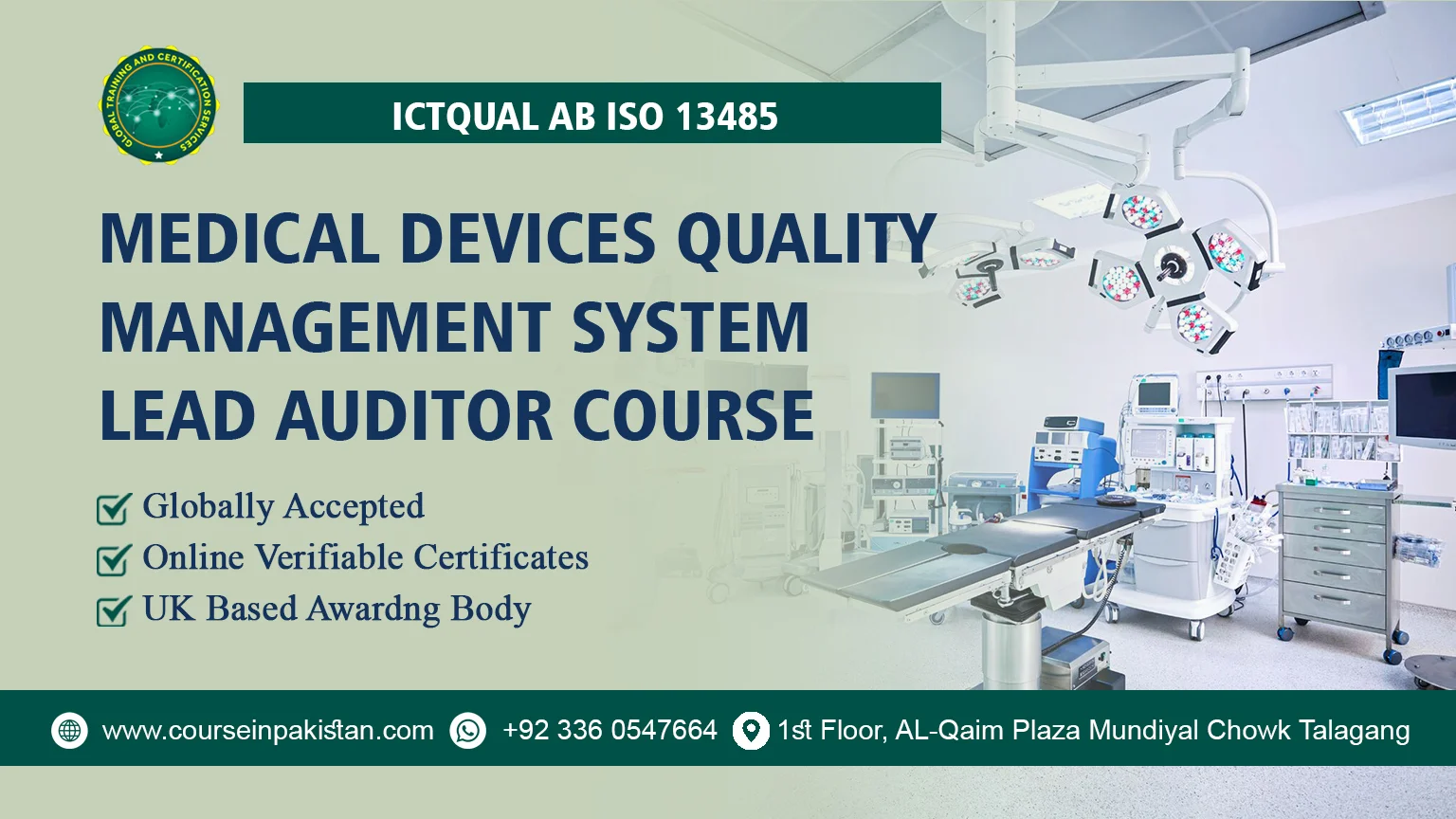
ICTQual ISO 13485 Medical Devices Quality Management System Lead Auditor Course
In the realm of medical devices, ensuring quality and safety is paramount. The ISO 13485 Medical Devices Quality Management System Lead Auditor Course stands as a cornerstone for professionals aiming to audit and enhance quality management systems according to international standards. This specialized training equips participants with the expertise to ensure medical devices meet regulatory requirements, maintain patient safety, and uphold quality standards throughout the product lifecycle.
Course Introduction
ISO 13485 is an international standard that specifies requirements for a Quality Management System (QMS) for organizations involved in the design, development, production, installation, and servicing of medical devices. The Lead Auditor course focuses on training individuals to audit QMS against ISO 13485 standards. This certification ensures that medical device manufacturers and suppliers adhere to rigorous quality standards to deliver safe and effective products.
Course Overview
The course encompasses comprehensive modules designed to delve into the intricacies of medical device quality management system auditing. Participants gain insights into auditing techniques, risk assessment methodologies, regulatory compliance, and strategies for continual improvement tailored to the medical devices industry.
Course Benefits
Enrolling in the ISO 13485 Lead Auditor Course offers numerous benefits:
- Specialized Expertise: Develops specialized knowledge in medical devices quality management system auditing.
- Career Advancement: Enhances career prospects in quality assurance, regulatory compliance, and auditing roles within the medical devices sector.
- Organizational Excellence: Equips organizations with tools to enhance product quality, ensure regulatory compliance, and maintain patient safety.
- Global Recognition: Demonstrates commitment to international standards and enhances credibility globally in the medical devices industry.
Course Study Units
The curriculum typically covers essential study units such as:
- Introduction to ISO 13485
- Quality Management Principles
- Requirements of ISO 13485
- Auditing Principles and Techniques
- Auditing Medical Device Processes
- Nonconformities and Corrective Actions
- Regulatory Requirements and Industry Best Practices
- Role of the Lead Auditor
Learning Outcomes
Introduction to ISO 13485
Learning Outcomes:
- Understand the purpose and scope of ISO 13485 in the context of medical devices.
- Explain the importance of ISO 13485 certification for ensuring quality management in medical device manufacturing.
- Identify key stakeholders and their roles in implementing ISO 13485 within organizations.
- Appreciate the benefits of aligning quality management practices with ISO 13485 requirements.
Quality Management Principles
Learning Outcomes:
- Familiarize with quality management principles applicable to medical devices.
- Interpret how quality management principles guide organizational processes and decision-making.
- Analyze the impact of effective quality management on product quality, safety, and customer satisfaction.
- Apply quality management principles to enhance organizational performance and achieve strategic objectives.
Requirements of ISO 13485
Learning Outcomes:
- Describe the structure and requirements of ISO 13485 for medical devices.
- Interpret specific clauses and sub-clauses within ISO 13485 to ensure compliance.
- Evaluate the effectiveness of organizational processes in meeting ISO 13485 requirements.
- Recommend improvements to align organizational practices with ISO 13485 standards.
Auditing Principles and Techniques
Learning Outcomes:
- Define auditing principles and their application in medical device quality management audits.
- Develop a structured approach to planning, conducting, and reporting audits.
- Apply audit techniques, including sampling, interviews, and document reviews, to gather audit evidence.
- Ensure compliance with auditing standards, regulatory requirements, and organizational policies during audits.
Auditing Medical Device Processes
Learning Outcomes:
- Conduct audits of medical device processes against ISO 13485 requirements.
- Evaluate the effectiveness of process controls, monitoring, and documentation in ensuring product quality.
- Identify areas for improvement in medical device processes to enhance efficiency and compliance with ISO 13485.
- Document audit findings accurately and objectively, including non-conformities and opportunities for corrective actions.
Nonconformities and Corrective Actions
Learning Outcomes:
- Identify non-conformities during medical device audits based on ISO 13485 requirements.
- Evaluate the severity and impact of non-conformities on product quality and regulatory compliance.
- Recommend appropriate corrective actions to address non-conformities and prevent recurrence.
- Verify the implementation and effectiveness of corrective actions to improve organizational processes.
Regulatory Requirements and Industry Best Practices
Learning Outcomes:
- Understand regulatory requirements applicable to medical devices, including standards and directives.
- Evaluate organizational compliance with regulatory requirements and industry best practices.
- Recommend strategies to ensure alignment with current regulations and enhance regulatory compliance.
- Stay updated with emerging trends, technologies, and best practices in the medical devices industry.
Role of the Lead Auditor
Learning Outcomes:
- Define the responsibilities and competencies required of a Lead Auditor in medical device quality management.
- Lead audit teams effectively to achieve audit objectives and deliver high-quality audit outcomes.
- Mentor and coach audit team members to enhance their audit capabilities and professional development.
- Uphold ethical standards, independence, and impartiality in conducting medical device audits as a Lead Auditor.
These learning outcomes collectively prepare participants to effectively audit Quality Management Systems for medical devices against ISO 13485 standards. They ensure alignment with best practices, compliance with international standards, and continuous improvement in quality management practices, thereby supporting organizational objectives and enhancing product quality and safety in the medical devices industry.
Who Should Take This Course
The course is ideally suited for quality assurance managers, auditors, regulatory affairs professionals, and individuals responsible for managing or auditing QMS within medical device manufacturing organizations. It is particularly valuable for those seeking to deepen their understanding of ISO 13485 requirements and advance their careers in quality management and regulatory compliance roles.
Future Progression for This Course
Successful completion of the ISO 13485 Lead Auditor Course opens doors to several opportunities:
- Advanced Certifications: Pursue advanced certifications in medical devices quality management or related regulatory standards.
- Consultancy Roles: Provide expert advice on implementing ISO 13485 and improving quality management practices in medical device manufacturing.
- Organizational Leadership: Lead initiatives to standardize QMS processes, enhance product quality, and ensure regulatory compliance.
- Continuous Learning: Stay updated with evolving regulations, technologies, and best practices in medical devices to remain competitive in the field.
ISO 13485 Medical Devices Quality Management System Lead Auditor Course is not just a certification but a pathway to ensuring excellence in medical device quality and safety. It equips professionals with the skills to audit QMS against international standards, fostering compliance, continuous improvement, and ultimately contributing to enhanced patient safety and satisfaction. As the medical devices industry continues to grow and innovate, the demand for qualified auditors proficient in ISO 13485 is set to increase, making this course a valuable investment in both personal career development and organizational success.

